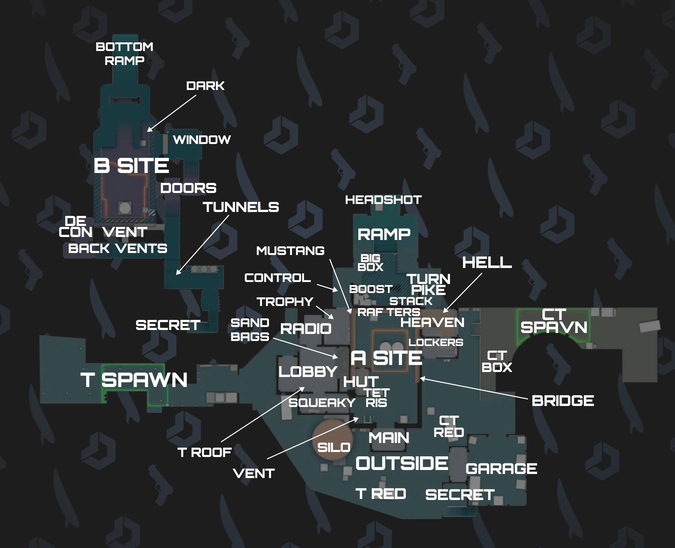Caribbean Business Insights
Exploring the vibrant business landscape of the Caribbean.
Nuke Secrets: Bombing Your Way to Victory
Unlock the ultimate strategies for domination in Nuke Secrets: Bombing Your Way to Victory! Discover tactics that lead to explosive wins!
The Science Behind Nuclear Bombs: How They Work and Their Impact
The science behind nuclear bombs is rooted in the principles of nuclear physics, particularly the processes of fission and fusion. In a fission bomb, a heavy nucleus such as uranium-235 or plutonium-239 is split into smaller nuclei when it absorbs a neutron, releasing a significant amount of energy in the form of an explosion. This reaction is initiated by assembling a supercritical mass using conventional explosives to compress the fissile material, leading to a rapid chain reaction. In contrast, a fusion bomb, also known as a thermonuclear bomb, uses the energy from a fission explosion to facilitate the fusion of light atomic nuclei, such as isotopes of hydrogen (deuterium and tritium). This fusion process results in even more energy being released, creating a far more powerful explosion.
The impact of nuclear bombs extends far beyond the immediate destructive power they unleash. The detonation of a nuclear weapon can result in catastrophic loss of life, widespread devastation of infrastructure, and long-term environmental consequences, including radiation fallout that poses health risks for generations. Additionally, the psychological and geopolitical ramifications of nuclear weapons cannot be understated; nations possess them as a deterrent, creating a delicate balance of power that can lead to tension and conflict. Understanding the science behind these devices is crucial for fostering discussions on disarmament, non-proliferation, and the ethical implications of their existence in our world.

Counter-Strike is a popular tactical first-person shooter game series that emphasizes team-based gameplay and strategy. Players assume the role of either terrorists or counter-terrorists and compete in various game modes. One exciting element introduced in the latest version is the Exklusive Case X CS2, which offers players unique weapon skins and items to enhance their gaming experience.
Nuclear Strategies in Warfare: Lessons from History
The historical trajectory of nuclear warfare has taught us invaluable lessons about nuclear strategies and the implications of their use. Since the dawn of the nuclear age, the world has witnessed the devastating effects of nuclear weapons, particularly during World War II with the bombings of Hiroshima and Nagasaki. These events underscored the importance of deterrence strategies, a concept that suggests that the mere possession of nuclear weapons deters adversaries from initiating conflict for fear of mutually assured destruction (MAD). As nations navigated the Cold War dynamics, the development of various doctrines, such as the 'first strike' and 'second strike' capabilities, revealed the complexities of maintaining peace while possessing such catastrophic power.
Moreover, lessons from history indicate that while nuclear weapons may provide a tactical advantage in war, they also necessitate profound ethical considerations and international diplomatic engagement. For instance, the ongoing discourse surrounding nuclear disarmament and non-proliferation treaties highlights the imperative of addressing global security challenges. Key historical events, such as the Cuban Missile Crisis, remind us that the brink of nuclear confrontation can lead to catastrophic consequences, reinforcing the necessity for communication and strategic stability between nuclear powers. Thus, understanding past nuclear strategies is essential for informing future policies as nations continue to grapple with the realities of an ever-evolving geopolitical landscape.
What Are the Ethical Implications of Nuclear Warfare?
The ethical implications of nuclear warfare extend far beyond the battlefield, posing moral dilemmas that challenge our understanding of humanity. The sheer destructiveness of nuclear weapons raises questions about the value of life and the responsibility of those who wield such power. For instance, the decision to employ nuclear arms can result in catastrophic loss of civilian life and long-term environmental damage, which makes one ponder: is the potential for deterring aggression worth the cost of innocent lives? Moreover, the possibility of accidental launches or rogue states possessing these weapons intensifies the fear that extinction-level events might occur through human error or misjudgment.
Another significant aspect to consider is the psychological impact of living under the threat of nuclear warfare. The concept of mutually assured destruction has historically prompted nations to avoid direct conflicts, but it has also instilled a sense of constant fear among civilians. This leads to severe mental health issues and societal anxiety, which raises ethical questions about the long-term viability of such deterrence strategies. Society must question whether enduring this fear is an acceptable price to pay for national security, and what this reveals about our values and priorities in preventing war and promoting peace.